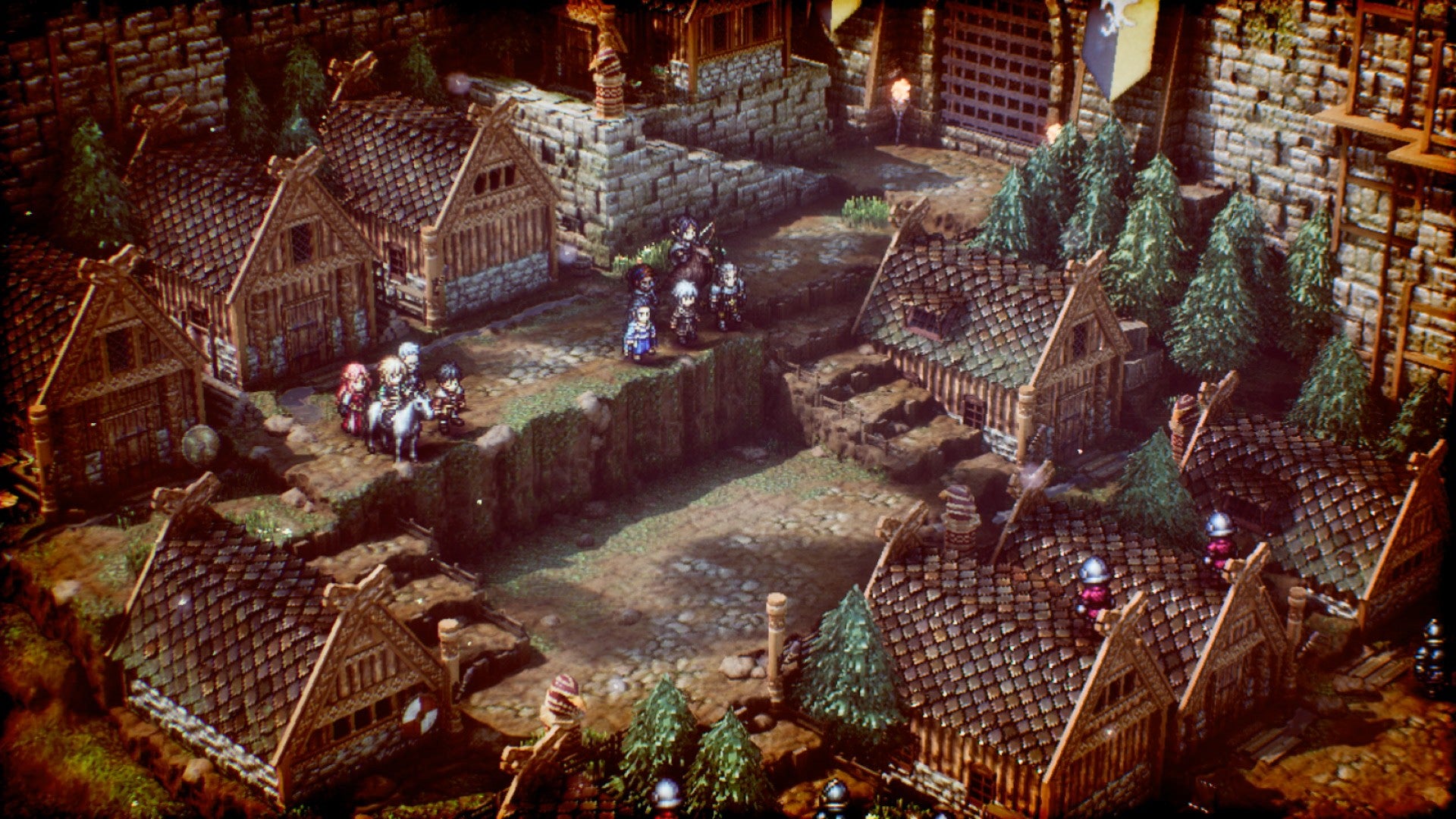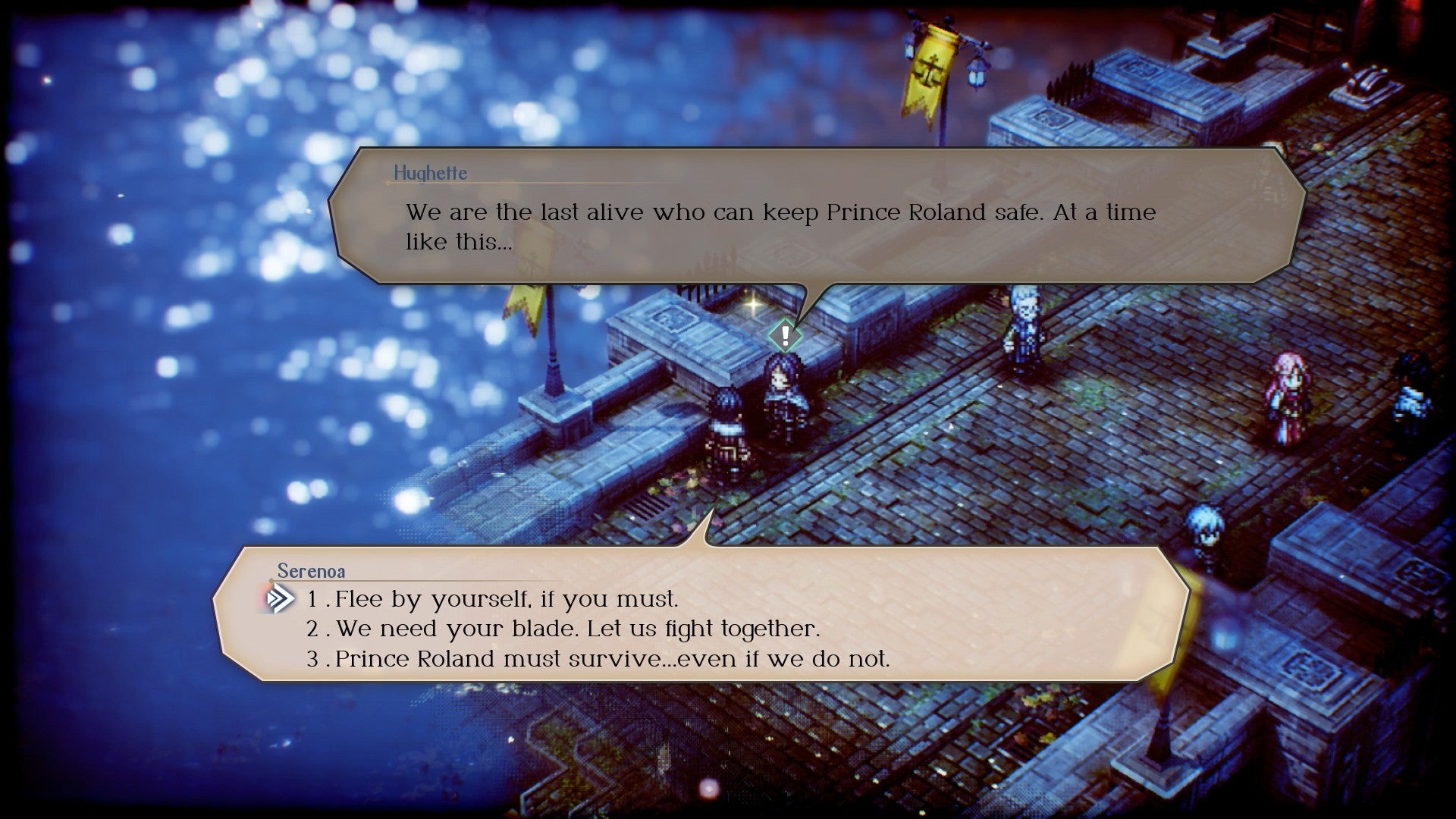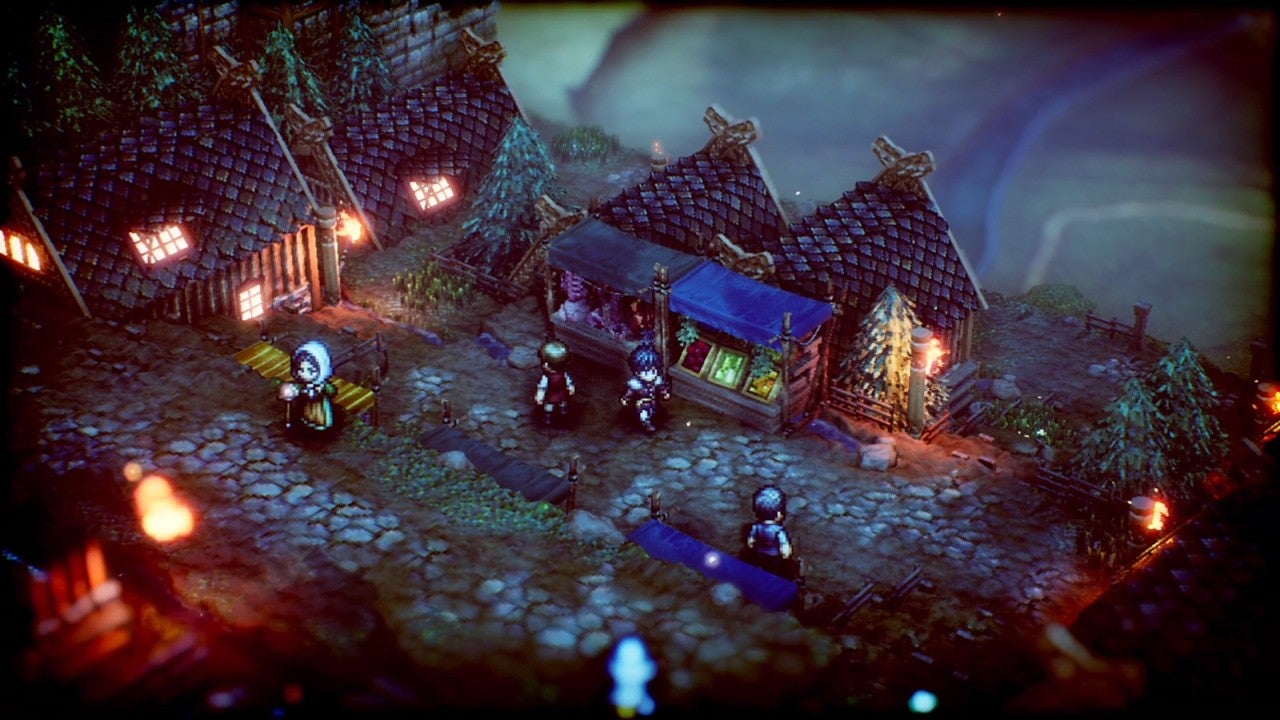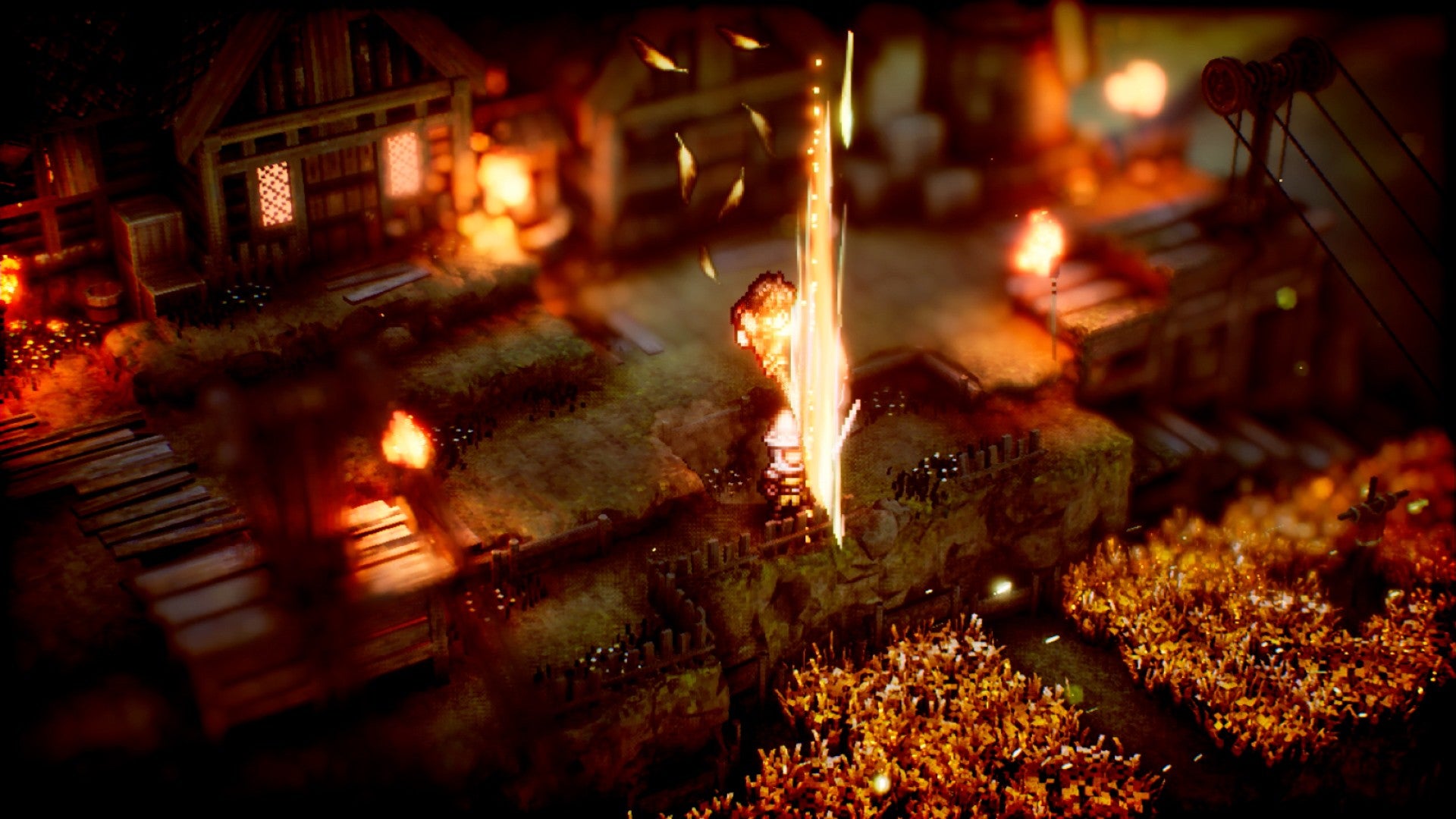Specifically, Triangle Strategy is – as the headline says – a slow burn. The start of the game is especially slow, but even once the story gets truly underway and begins to roll at its natural speed, it still feels quite glacial. It’s a game that’s often a little too navel-gazey and long in the tooth for its own good – and yet it’s also compelling enough that I keep returning to it, chipping away at it in little chunks here and there to work my way through an intriguing narrative and engage in thrilling, deeply tactical battles. The largest touchstone in the development of Triangle Strategy was obviously Final Fantasy Tactics and its spiritual forebear, Tactics Ogre. These creations of Yasumi Matsuno (who, to be clear, was not involved in Triangle Strategy in any way) were also pretty waffley and self-serious, though I also think it’s completely fair to say that they executed on their Shakespearian ambitions much more strongly than Triangle Strategy ultimately does. In this manner, this latest HD-2D endeavor from Square Enix bears a great resemblance to its predecessor Octopath Traveler – which was a game crammed with wonderful ideas drawn from all-time classic inspirations that struggled to fully weave them together into something that was more than the sum of its parts. That’s something that this crew, led by producer Tomoya Asano, are still chasing. And yet… maybe it actually is more than the sum of its parts, despite what I just said? Maybe that’s why I’m still playing it, still muddling through even though it’s not the sort of game that’s hooking me and keeping me absolutely glued to it. A large part of it is the combat, which is a wonderful streamlined and yet pleasingly varied combat and character progression system that leads to exciting and challenging encounters. It’s certainly a simpler take on tactical RPG battles than in the likes of Disgaea or Fire Emblem, trading things like friendship mechanics or battle systems designed to build to ludicrous, outsized damage numbers for a more gradual, grounded progression. Where it does go for complexity, it does so with clever and easy-to-understand concepts, such as in how magic can interact with the terrain and warp the state of the battlefield – like casting Lightning-element spells on bodies of water to carry the spell’s effects a further distance, or burning away wooden barricades with fire magic. While preparing for battle, you’ll have to make hard choices about who to take into battle, with each character carrying not just a typical RPG role trope, but also some unique twists based on who precisely they are as a person. It’s satisfying stuff. All of this is good because the narrative that delivers you to these combat encounters is a mixed experience. The overarching story is full of political intrigue and shades of gray that aren’t often done well in games yet are here – but individual characters aren’t nearly as compelling as in this title’s rivals, or even as in Octopath Traveler. The voiceover work is all over the place quality-wise, at least in English, and this combines with a generally long-winded story to often sap a little bit of the urgency out of the matter. But for all of this, there’s brilliance buried among the muddled delivery. The game’s musing on democracy is offered through a series of votes that take place in the melodramatically named ‘Scales of Conviction’ system, where the characters of Triangle Strategy vote on a key issue that will often have significant character and story repercussions. As the player, you not only get to vote yourself, but also attempt to influence the votes of NPCs. Doing so requires a knowledge of your allies, but also exploration and even some actions in combat affect how much you’ll be able to influence the outcome of the votes. This system is further enhanced by the fact that a lot of these choices are by no means easy. Some of them are brutal, while others might see you wanting to manipulate a party of do-gooders into doing something morally reprehensible for the greater good. Every character is different and has a unique attitude and world view, and so it’s on you to pick your battles to carve your desired path through the story. It’s an interesting system that borders on brilliant, and it adds a great deal to the narrative to make it more generally compelling. And it looks good, too, of course. This HD-2D stuff that Square Enix has created is being turned into a brand all of its own for a reason – it’s a beautiful way to have a revival of the look and feel of classic RPGs in a modern context. This game is as gorgeous as Octopath was, and has stronger menus and the like to boot. So, yes – I love a lot about Triangle Strategy. I also still haven’t finished it, however. I keep chipping away at it in between Elden Ring, and the new Street Fighter update, and even returning to Cyberpunk. Soon, it’ll probably be sharing my time with the Chrono Cross Remaster. It feels like that sort of game; something lovely, memorable, and satisfying – but perhaps not something to binge. And I’m okay with that; it’s well worth the price of admission, and I really hope to see the ideas expressed in the Scales of Conviction system explored in other games beyond this.



